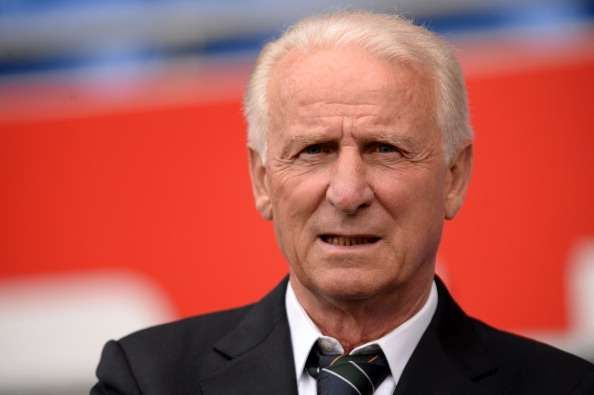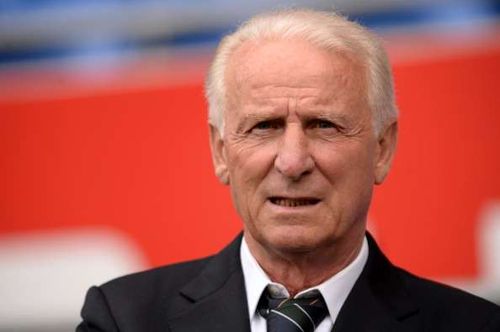
The best managers of all time: #14 - Giovanni Trapattoni
#14 Giovanni Trapattoni
Giovanni Trapattoni is one of the most decorated managers in the history of the game, and there should be no surprise he’s on our prestigious list. He’s in a distinguished set of managers to have won league titles in four different countries, along with only 3 other immensely acclaimed tacticians.
Trapattoni had a great playing career with Italian giants AC Milan, winning 2 Serie A titles and 2 European Cups in the 1960s’s. He was an uncompromising center back who could also fill in as a defensive midfielder, with his most remembered performance coming in the 1963 European Cup final against Benfica when he magnificently marked Portuguese legend Eusebio in the second half.
He began his managerial career with the Rossoneri, but wasn’t there for long and joined rivals Juventus soon enough. Trapattoni would then manage the Bianconeri for 10 years, in a tenure decorated by 6 Serie A titles, the European Cup in the 1984-85 season (beating reigning champions Liverpool in the final) and another 7 trophies that included the UEFA Cup and the Intercontinental Cup.
Also read: The best managers of all time: #16 Valeri Lobanovskiy
Michel Platini, Paolo Rossi, legendary defenders Gaetano Scirea and Antonio Cabrini and also Marco Tardelli were all a part of Trapattoni’s glorious Juve team.
A manager destined for greatness
Trapattoni had showed signs from his playing career that he would make a great manager, and it was his attention to detail and tactics that had always separated him from the bunch. He would ensure that his team had separate sessions every week for analysing their past performances and deliberated over how they could improve.
The Italian also had a great understanding of the importance of finding space on the pitch, and he would draw diagrams to map out how his team could exploit the opponents to find the maximum room on the field. When to spread out wide, penetrate through the center and create passing options throughout the time they had the ball.
Trapattoni was relatively conservative in his approach throughout his career, and while it would become a quality he would be criticised for in the latter stages of his career, it brought him a lot of success for the most part. And the fact that he remained consistent to his ideologies is also a quality that has to be admired.
Also read: The best managers of all time : #15 - Ottmar Hitzfeld
The Milanino native wouldn’t spend the amount of time he managed Juve at any other club in his managerial career, but he did follow up his success in Turin with Inter Milan. He won 3 trophies with the Nerazzurri, capturing the Serie A title in the 1988-89 season and the UEFA Cup in 1991. The Italian would bring in some players who would cement their legacy with Inter in Lothar Matthaus and Andreas Brehme.
After a 3 year second spell at Juve, Trapattoni would find himself in Bavaria with German powerhouse Bayern Munich. His first year there wasn’t very successful, and the Italian was back in Italy with Cagliari after one season but he would return to Bayern soon after.
Trapattoni was determined to exorcise the ghosts of his terrible first year, and he would in some style, winning 3 trophies with Bayern including the Bundesliga title. The rest of the Italian’s career from that point wouldn’t deliver as much excitement as before, though. His tenure as the manager of the Italian national team would be disappointing, an Italy team full of stars would underachieve at major tournaments.
He would win a couple of more league titles, the Primeira Liga with Benfica and the Austrian Bundesliga with Red Bull Salzburg, and he would also have decent years at Fiorentina and Stuttgart. But decent was not what the Italian was used to, and even the hype and expectation that surrounded his appointment as manager of the Republic of Ireland national team wouldn’t bring with it that much success. He would qualify for Euro 2012 and very nearly the 2010 FIFA World Cup and did merit appreciation for bringing a strong work ethic and unity in the national team, but was also criticized for his cynical approach.
The Milan and Juve legend then stopped in 2013, after 40 years in management. He had his ups and downs for sure, but his trophy cabinet and management legacy make sure that he will be remembered for the decades to come.
